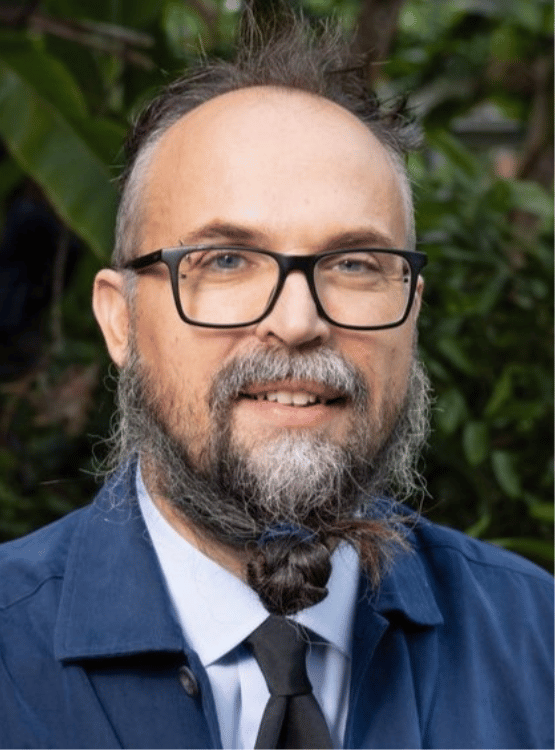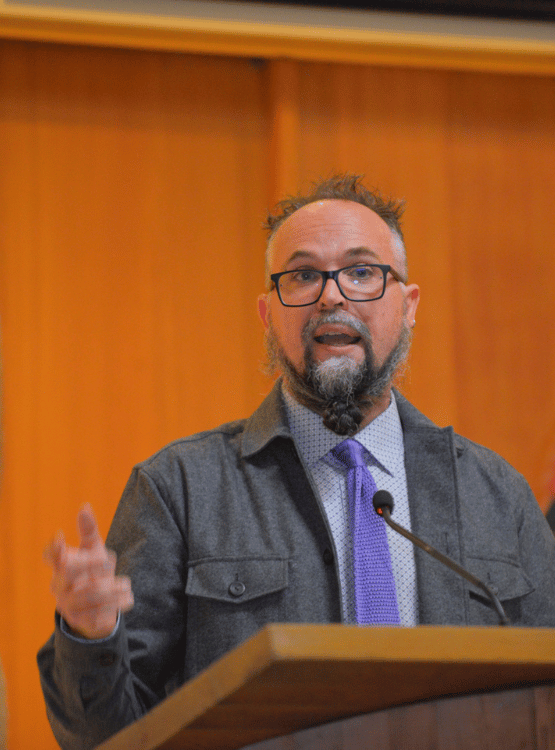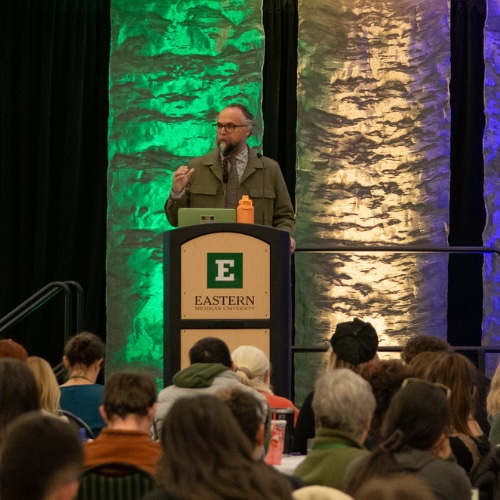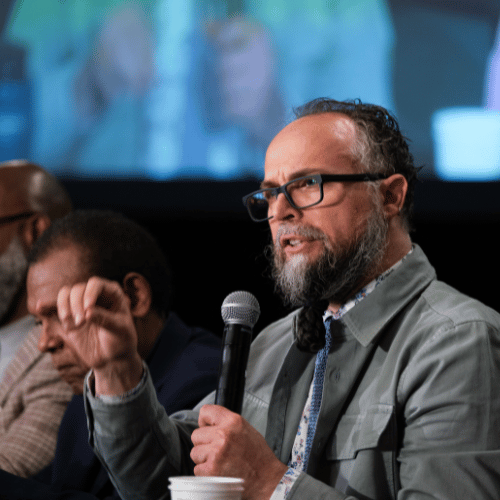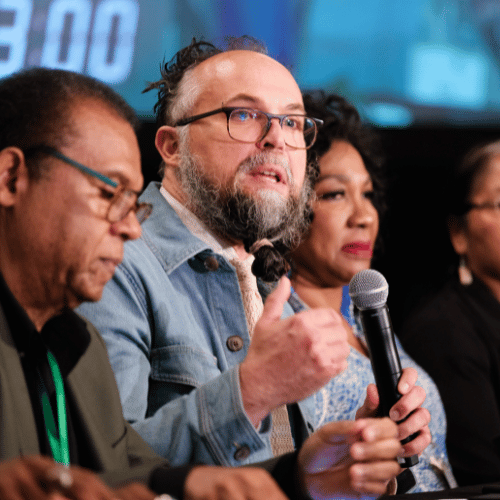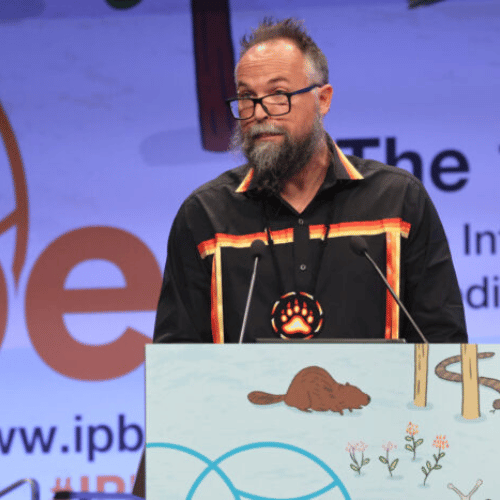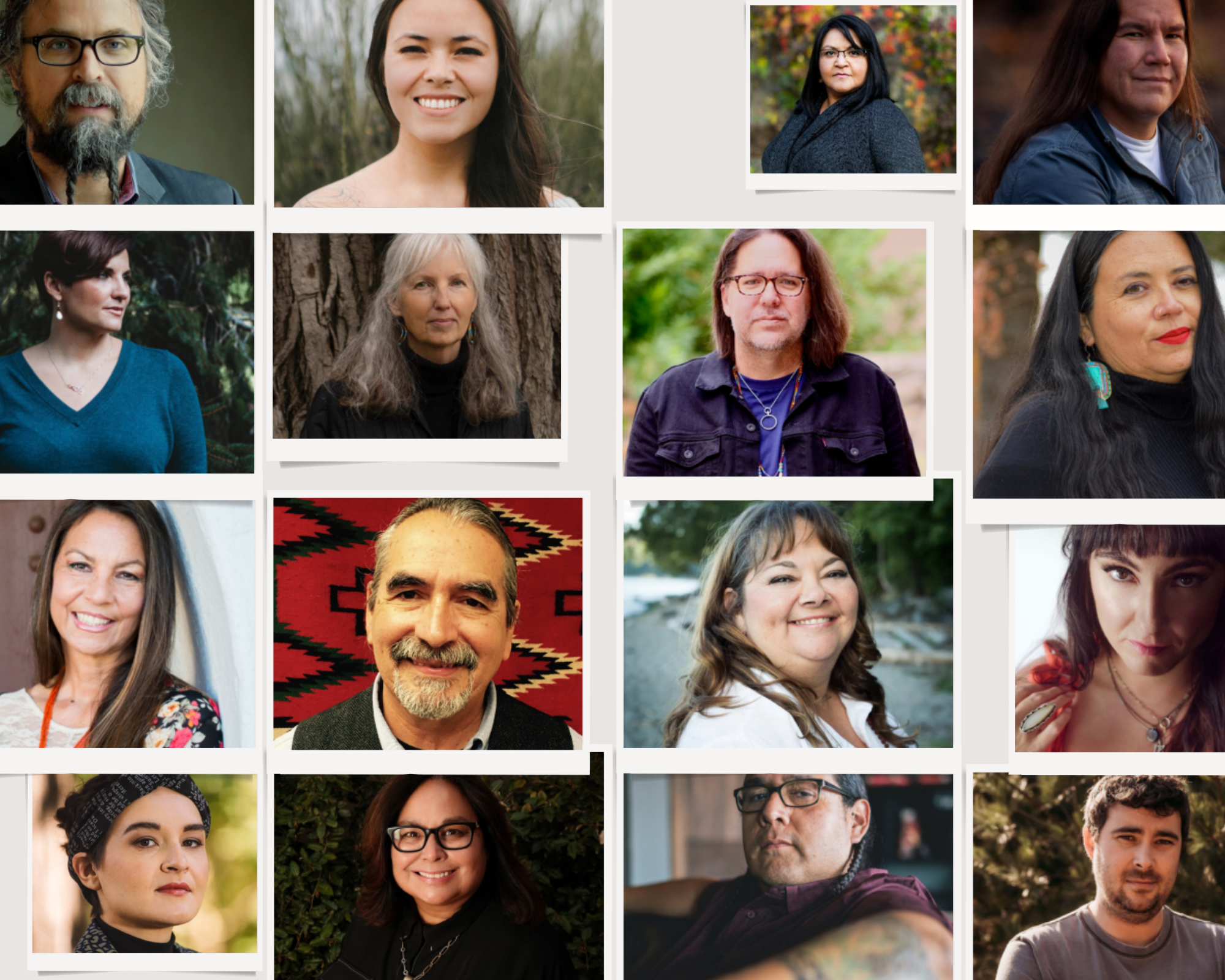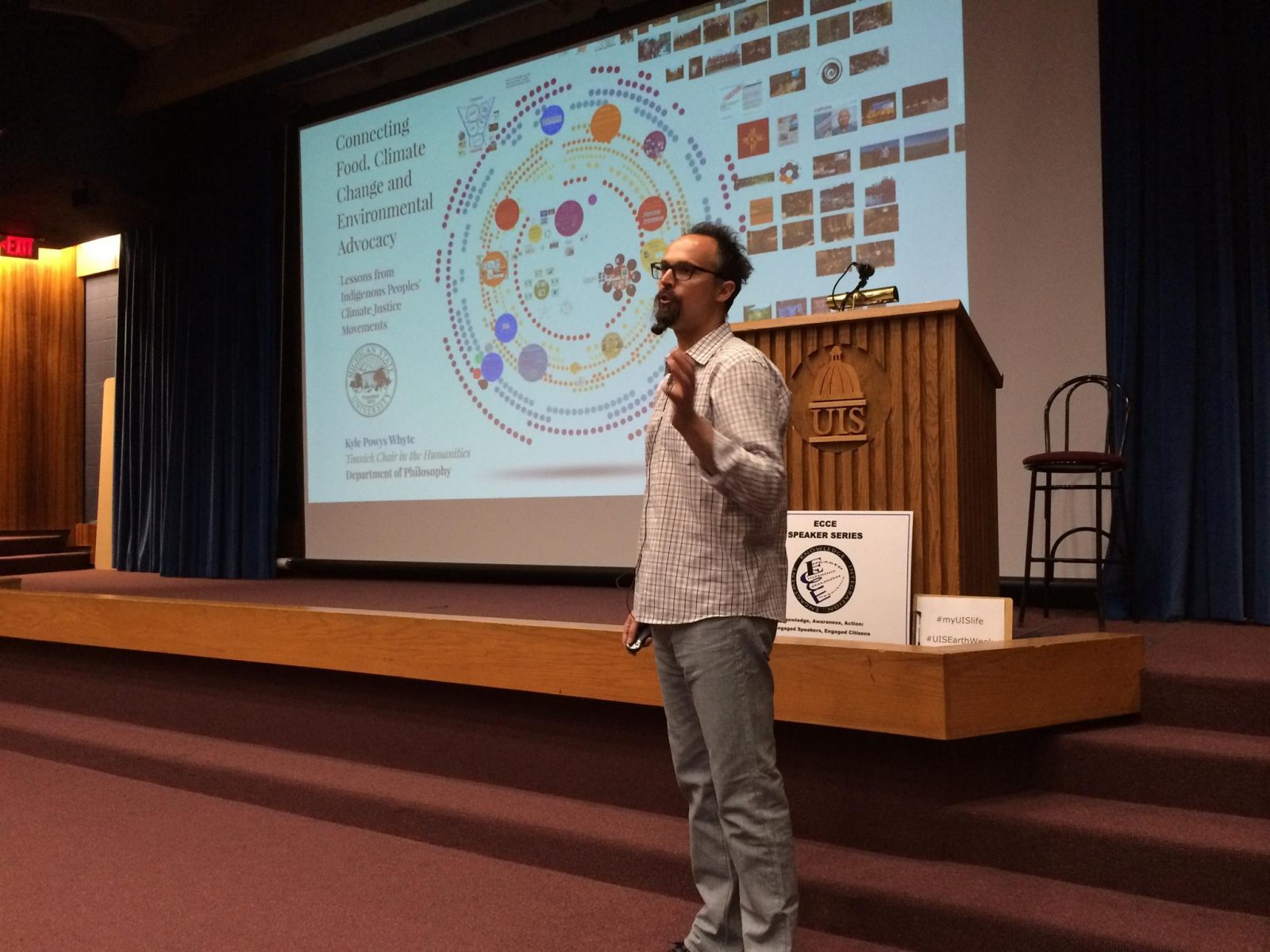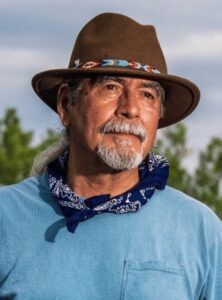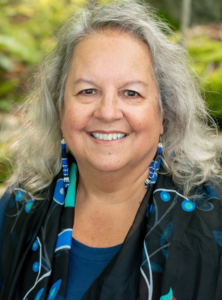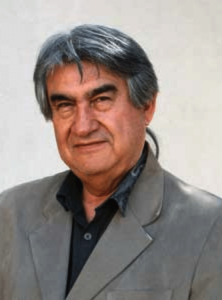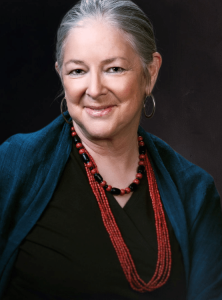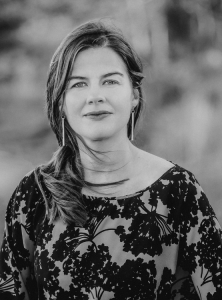Kyle Whyte is a faculty member at Michigan where he is George Willis Pack Professor in the School for Environment and Sustainability and University Diversity and Social Transformation Professor. On campus, Kyle teaches in and coordinates the School’s environmental justice graduate specialization. He is founding Faculty Director of the Tishman Center for Social Justice and the Environment, Principal Investigator of the new Environmental Justice + Humanities Hub, co-Principal Investigator of the Global Center for Climate Change and Transboundary Waters, Faculty Associate of Native American Studies, Principal Investigator of the Secretariat for the Pathways Alliance for Change and Transformation, STRIDE Committee member, affiliate Professor of Philosophy, and Senior Fellow in the Michigan Society of Fellows.
Kyle’s research on environmental justice addresses moral and political issues that Indigenous peoples are addressing in the areas of climate change, conservation, and cooperative relationships with science institutions. He is an enrolled member of the Citizen Potawatomi Nation. His publications appear in journals such as Climatic Change, Weather, Climate & Society, Science, Daedalus, WIREs Climate Change, Environment & Planning E, and Sustainability Science.
Kyle is co-Chair of the Continental Biodiversity and Climate Change Assessment. He is a member of the IPBES Indigenous and Local Knowledge Task Force, the National Academy of Sciences’ Resilient America Roundtable, The Nature Conservancy’s External Science Advisory Board, the American Museum of Natural History’s Advisory Committee, and the Christensen Fund’s Indigenous Leadership Program. He is Board President and a founder of both the Michigan Environmental Justice Coalition and the Global Land Restoration Fund, serves as a Trustee of Earthjustice, and sits on the Energy Equity Project’s Advisory Board and Climate United’s Advisory Council.
Previously, Kyle has served as a U.S. Science Envoy and as a member of the White House Environmental Justice Advisory Council, the Department of the Interior’s Advisory Committee on Climate Change and Natural Resource Science, and two environmental justice work groups convened by Michigan governors. He has been an author for U.S. Global Change Research Program, the IPCC Working Group II, and the Status of Tribes and Climate Change report. He is a certificate holder of the United Nations’ Training Programme to Enhance the Conflict Prevention and Peacemaking Capacities of Indigenous Peoples’ Representatives.
